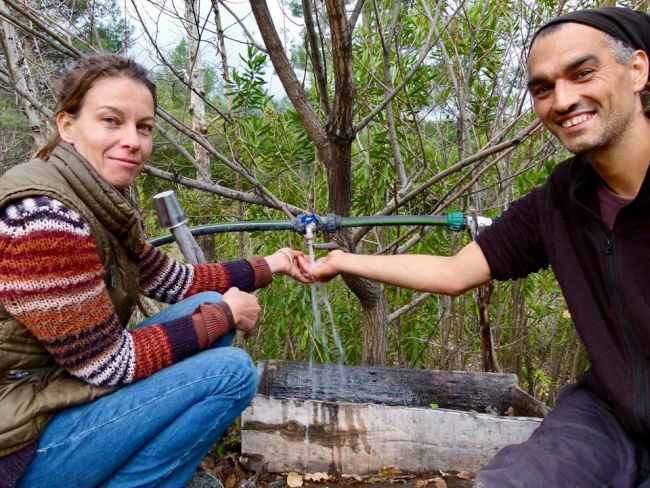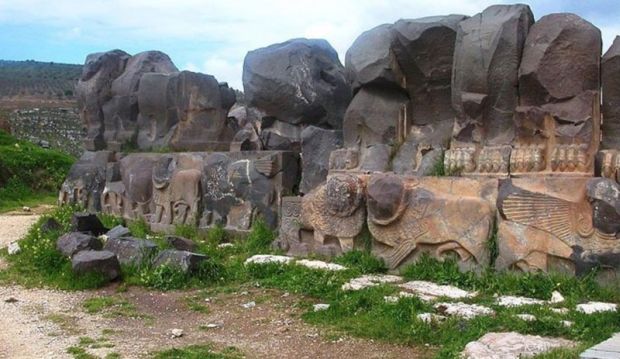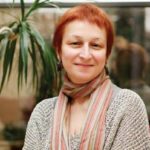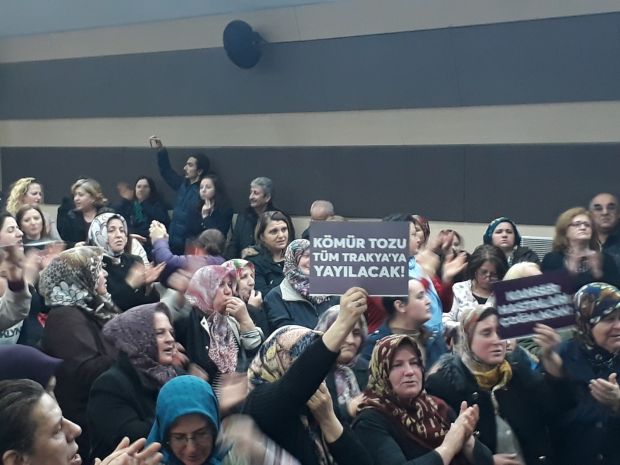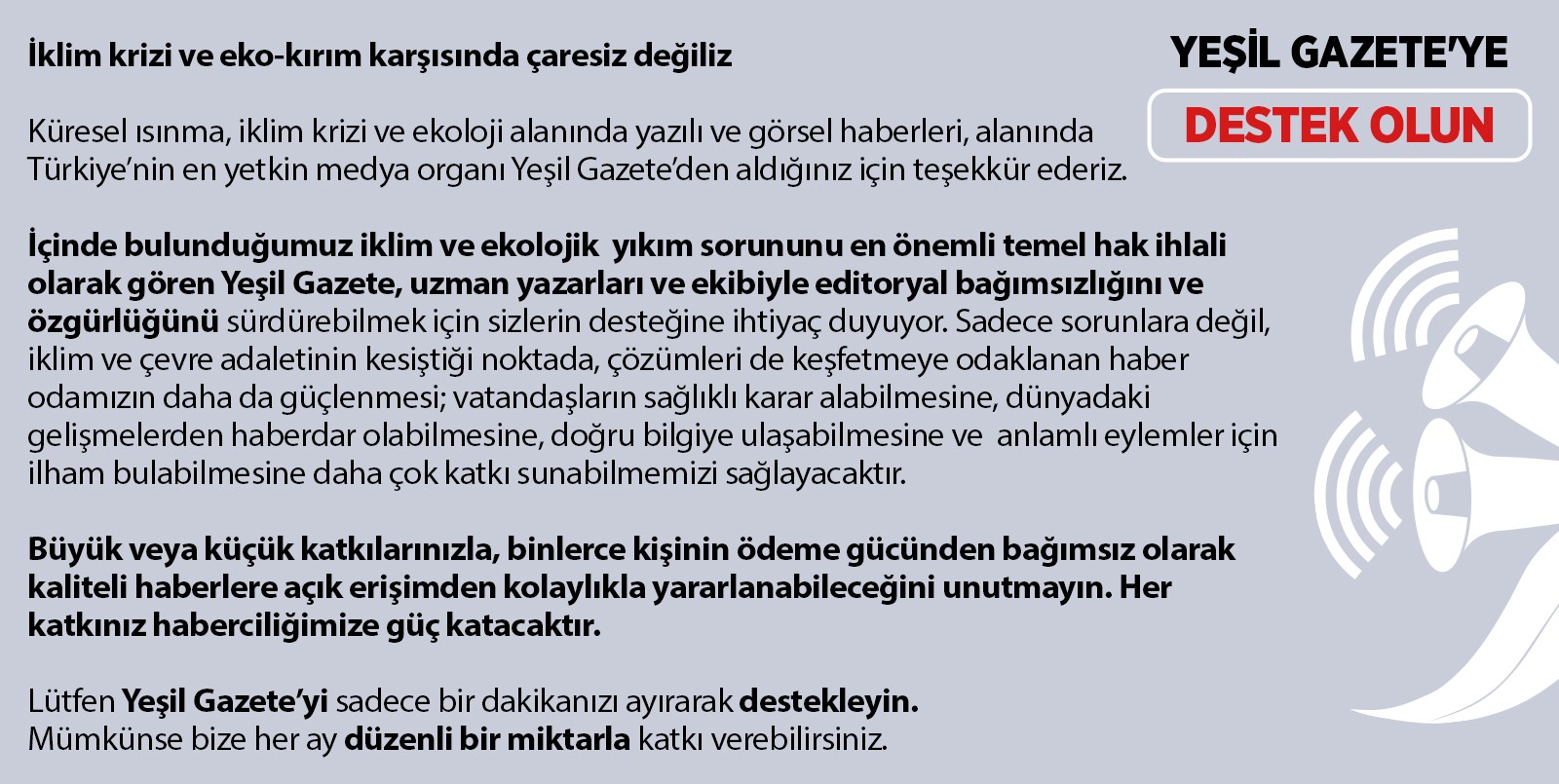Loss of Human Life and Cultural Herritage in Afrin Increases: As Turkey’s Operation Olive Branch in the Afrin region of Syria leaves two weeks behind, sources report conflicting and changing numbers for casualties, but the number of Turkish soldiers killed was 15 at last count on Sunday evening, Syrian fighters on their side killed is no longer reported by Turkish forces, and the number of YPG Kurdish fighters killed was in the nine hundreds. The number of civilians killed vary disproportionately according to source, but are put at more than 55 by the Syrian Observatory for Human Rights.
The casualties were not limited to human lives, and the temple of Ain Dara, with origins dating back to the Neo-Hitite Empire and 1300BC, known for its lion shaped sphinxes, was severely damaged under Turkish air strikes. Experts report 40 to 50% of the temple destroyed. The tragedy was completely ignored by mainstream Turkish media.
Arrested for Prescribing Peace: 11 Members of the The Turkish Medical Association (TMA) Central Council,Raşit Tükel 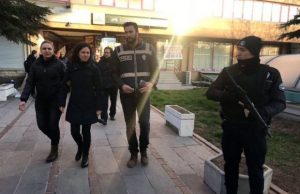 (chair), Sezai Berber, Sinan Adıyaman, Selma Güngör, Şeyhmus Gökalp, Hande Arpat, Ayfer Horasan, Taner Gören, Funda Obuz, Yaşar Ulutaş, and Nazım Yılmaz, who had warned war is a human-made public health problem, were detained from their homes at 06:30 on the 30th of January, on orders of the Ankara Chief Public Persecutor’s Office. In a declaration for the association, they had reminded, their first and foremost duty is to defend life and commit to maintain the environment of peace, and said that the way to cope with the problem of war is to have a just, democratic, equalitarian, free and peaceful life and maintain it.President Erdoğan had publicly declared them “terrorist lovers”. Adıyaman, Horasan and Gökalp were released on probation on Friday, and the remaining 8 this Monday. Their lawyer informs the media they are charged with supporting a terrorist organisation. The TMA consecutively strongly protested the arrests, reiterating their stance, and both the Republican People’s Party (CHP) and the Peoples’ Democratic Party (HDP) in parliament also protested it.
(chair), Sezai Berber, Sinan Adıyaman, Selma Güngör, Şeyhmus Gökalp, Hande Arpat, Ayfer Horasan, Taner Gören, Funda Obuz, Yaşar Ulutaş, and Nazım Yılmaz, who had warned war is a human-made public health problem, were detained from their homes at 06:30 on the 30th of January, on orders of the Ankara Chief Public Persecutor’s Office. In a declaration for the association, they had reminded, their first and foremost duty is to defend life and commit to maintain the environment of peace, and said that the way to cope with the problem of war is to have a just, democratic, equalitarian, free and peaceful life and maintain it.President Erdoğan had publicly declared them “terrorist lovers”. Adıyaman, Horasan and Gökalp were released on probation on Friday, and the remaining 8 this Monday. Their lawyer informs the media they are charged with supporting a terrorist organisation. The TMA consecutively strongly protested the arrests, reiterating their stance, and both the Republican People’s Party (CHP) and the Peoples’ Democratic Party (HDP) in parliament also protested it.
Supporters also Under Arrest: Some who extended their support to the TMA declaration over social media under a hashtag ‘we stand with TMA’ were also arrested. Among them were HDP co-chair Yüksekdağ’s advisor Songül Akbay, Cevahir Canpolat of the Pir Sultan Abdal Cultural Association, a leading Alevi association, writer Emek Erez, and Ali Erol of the Kaos GL LGBTI+ society.
Amnesty Head Released and Arrested Again: Taner Kılıç, Chairperson of the Board of Directors for Amnesty International 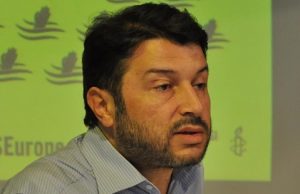 Turkey who is being charged with membership of a terrorist organisation, namely the Gülen network, and who had been remanded in custody since June was released on Thursday at the latest hearing of the so-called Büyükada case, but was subsequently arrested again on the Istanbul Chief Public Prosecutor’s objection made to a review court.
Turkey who is being charged with membership of a terrorist organisation, namely the Gülen network, and who had been remanded in custody since June was released on Thursday at the latest hearing of the so-called Büyükada case, but was subsequently arrested again on the Istanbul Chief Public Prosecutor’s objection made to a review court.
Arrested two weeks before a digital security workshop among human rights NGO workers in Istanbul’s Büyükada island he was due to attend, Kılıç’s case had later been combined with the case of those arrested at the workshop. The workshop was construed into conspiracy theories in the right political sphere and media. Other suspects in the case are Özlem Dalkıran, Peter Steudtner, Ali Gharavi, Veli Acu, Günal Kurşun, İdil Eser and Nalan Erkem. The trial for the case was postponed.
Meanwhile, social scientist Prof. İştar Gözaydın was acquitted in the case where she is being charged with being a member of a terrorist organisation. The persecutor argued that her words at a programme with a local tv station were evidence of her support without being a member to the Gülenist organisation. Her defence that she spoke purely as a scholar of the law was upheld. She had been detained for over three months between December 2016 and March 2017, but was being tried on probation.
Thrace Resists Coal: Citizens and activists prevented the environmental assessment report public hearing for the coal power plant proposed to be build between the villages of Pınarbaşı and Çerkezköy in Tekirdağ from taking place. The region in the heavily polluted Ergene River valley already lacks water for water intensive agriculture, let alone the needs of a coal power plant. Villagers worried for their pulmonary health, prospect of cancer, their children’s future and their farmland protested against the project inside the meeting hall, but Green Gazette contributing reporter Rıfat Doğan also interviewed community leaders who said they were not let in the hall. The same sources site that if the project goes ahead, the region will face heavy deforestation along 3 thousand hectares of land. Activists from the Northern Forests Solidarity were also present at the hearing.
Activists Regain Access to Water: Tuğba Pınar Günal and Birhan Erkutlu fighting against the construction of two hydroelectric power plants on the pristine Alakır River in Antalya regained access to water. A site manager of Metamar/Dedegöl Energy, the company constructing one of the two proposed hydro plants, had bought the plot of land next to theirs, and in October, cut off the ground water flowing towards their well, ostensibly in order to build a public water fountain by the road. A court ruled this week for a stay of execution on the case they brought against the seizure of water and consecutively a pipe was laid from the said fountain for the couple to have access to water.
Turkey’s Agricultural Imports on the Increase, Cooperatives are the soulution: Turkey now imports 6.4 times more worth in agriculture than in exports, said a response by the Chamber of Agricultural Engineers to the latest statistics released. There is a deficit of 3.8 billion Euros in foreign trade of agricultural raw material and a net deficit of 400 million Euros in foreign trade of agricultural goods. Turkey now imports wheat and straw, beans and pulses, of which it used to be an exporter, nearly a million tonnes of cotton although it is a textile manufacturing country, vegetable seeds, live animals, and meat. While the country payed 2.7 billion Euros to farmers in 2017, less than half what the 2006 Agriculture Law mandates, it spent 14 billion Euros on agricultural imports. Agricultural subsidies are no more than 2.5% of the budget. The result of these policies has been farmers taking out of cultivation land equal the size of Belgium in the last 15 years.
Ahmet Atalık, Istanbul chapter chairperson for the chamber, suggested as remedies accelerating public investment such as irrigation and  consolidation of farmland; prevention of farm and pastureland for non-agricultural activities; realising the increasing need for agricultural and pasture land in face of climate change; collectivising producers under the roof of cooperatives, the state cooperating with these cooperatives for planning and quality, and support being disbursed through these structures; use of funds not for imports but for production; following up on whether and how public subsidy disbursed reflects in production; reducing the supply chain between consumer and farmer, again best through cooperatives; and increasing agricultural employment through realising imports hinder prospects for youth with education in the field.
consolidation of farmland; prevention of farm and pastureland for non-agricultural activities; realising the increasing need for agricultural and pasture land in face of climate change; collectivising producers under the roof of cooperatives, the state cooperating with these cooperatives for planning and quality, and support being disbursed through these structures; use of funds not for imports but for production; following up on whether and how public subsidy disbursed reflects in production; reducing the supply chain between consumer and farmer, again best through cooperatives; and increasing agricultural employment through realising imports hinder prospects for youth with education in the field.
Reports that Ministry of Agriculture Will Hinder Vermicompost: Reports in internet media suggest that the composting guidelines being put together by the Ministry of Agriculture will force composting material to be cooked at 70 degrees before being given to worms, making the resulting compost innutritious and expensive. It will effectively end red earthworm composting. There are multiple theories as to why this is, including to keep demand for chemical fertilisers going.
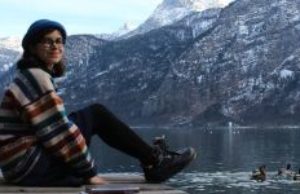 As Climate Change Finds a Seat on the Municipal Bus: Özge Doruk‘s editorial questioned the municipal responses to climate change at the city level in Istanbul, comparing the initiatives by the Greater Istanbul Municipality and the Kadıköy Municipality. The Greater Istanbul Municipality impact study states that summers will grow hotter and drier, dry periods grow longer, and sub freezing temperatures will nearly ever be seen. The municipality aims at a roadmap for action, preparing a greenhouse gas inventory, preparing climate scenarios, determining risks, opportunities and vulnerabilities, conducting meetings with partners, coming up with an action plan, and finally developing awareness and increasing capacity. How this plays along with “mega-projects” such as the Canal Istanbul is another question, she says. Kadıköy Municipality’s Holistic and Participatory Climate Action Plan on the other hand is a 12 month project to increase climate awareness among municipality employees and district residents. The municipality aims at developing need-based sustainable plans, developing a sustainable local platform espousing the issue, and developing a sustainable education programme for 3 to 6 year olds, thus becoming more climate resilient. While climate adaptation has a long way to go in the city, we can at least finally be hopeful that the ball has started rolling, Doruk says.
As Climate Change Finds a Seat on the Municipal Bus: Özge Doruk‘s editorial questioned the municipal responses to climate change at the city level in Istanbul, comparing the initiatives by the Greater Istanbul Municipality and the Kadıköy Municipality. The Greater Istanbul Municipality impact study states that summers will grow hotter and drier, dry periods grow longer, and sub freezing temperatures will nearly ever be seen. The municipality aims at a roadmap for action, preparing a greenhouse gas inventory, preparing climate scenarios, determining risks, opportunities and vulnerabilities, conducting meetings with partners, coming up with an action plan, and finally developing awareness and increasing capacity. How this plays along with “mega-projects” such as the Canal Istanbul is another question, she says. Kadıköy Municipality’s Holistic and Participatory Climate Action Plan on the other hand is a 12 month project to increase climate awareness among municipality employees and district residents. The municipality aims at developing need-based sustainable plans, developing a sustainable local platform espousing the issue, and developing a sustainable education programme for 3 to 6 year olds, thus becoming more climate resilient. While climate adaptation has a long way to go in the city, we can at least finally be hopeful that the ball has started rolling, Doruk says.
 Another Style of Food is Possible: Pelin Cengiz points the spotlight on Anadolu Efes Group Chairperson Tuncay Özilhan‘s statement that home brewery means loss of tax revenue. The industry tycoon said their beer sales have declined 5.7% over nine months, but he was not sure that people are consuming less beer, that they are rather brewing at home, and as the total tax on beer is at 60%, this means tax revenue loss. He added that he had shared his concerns with the authorities. Upon popular backlash, he later tried to clarify that he meant unregulated production for sale, but the point was clear.
Another Style of Food is Possible: Pelin Cengiz points the spotlight on Anadolu Efes Group Chairperson Tuncay Özilhan‘s statement that home brewery means loss of tax revenue. The industry tycoon said their beer sales have declined 5.7% over nine months, but he was not sure that people are consuming less beer, that they are rather brewing at home, and as the total tax on beer is at 60%, this means tax revenue loss. He added that he had shared his concerns with the authorities. Upon popular backlash, he later tried to clarify that he meant unregulated production for sale, but the point was clear.
Cengiz underlines it is everybody’s right to produce their own food and drink, corporations or governments have no right to impose on people that they consume or buy any food or basic necessity. Everybody who consumes food needs to think about what they can do with their own means. It is important to know how what you consume is produced. It is also important that this is done through collectives, community supported agriculture or cooperatives, which are based on solidarity and supporting local and small scale producers, she continues.
Though we are far from a great transformation, reform in consumption, and a sustainable new model that puts the environment, nature and green economies at the centre of its approach, the last 10 years since multiple financial crises have seen alternatives crop up and be adopted. Those who profit from the current system do not want to let it go. That is why the efforts of individuals and small communities are important. Everybody has the power that comes from what they demand and what they don’t, what they buy and what they don’t. This power also entails a responsibility for the Earth we live on. She states, it is possible to use this power to progress towards a system that makes healthy, quality, fair and nutritious food accessible..
Other original Green Gazette articles this week, not covered here, include topics as bee keeping and air pollution in the Marmara region.
Green Gazette – Yeşil Gazete
Translated and summarised by Alidost Numan

